Palestrantes
Rio Climate Action Week
23 a 29 de agosto de 2025
Palestrantes
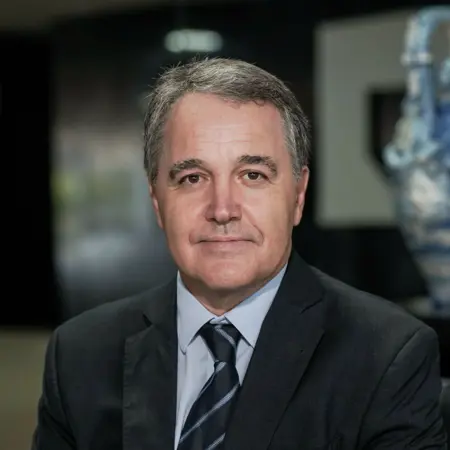
Dan Ioschpe
High-Level Climate Champion for COP30
BIOGRAPHY
Dan Ioschpe is the Chairman of the Board of Directors of Iochpe-Maxion and a member of the boards of WEG, Marcopolo, and Embraer. He also serves as one of the Vice Presidents of FIESP (Federação das Indústrias do Estado de São Paulo) and IEDI and is a Board Member of Sindipeças. In 2024, he chaired B20 Brasil.
Born in Porto Alegre in 1965, he holds a degree in Social Communication from UFRGS (Universidade Federal do Rio Grande do Sul), a postgraduate degree in Marketing from ESPM-SP (Escola Superior de Propaganda e Marketing), and an MBA from the Tuck School of Business at Dartmouth College, USA.
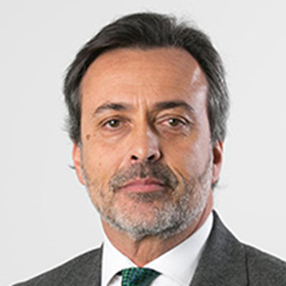
Dr Marcelo de Andrade
Founder, Pro Natura International
BIOGRAPHY
Dr Marcelo Carvalho de Andrade is Co-Convenor of Rio Climate Action Week and Founder & Chair of the award-winning Brazilian sustainable development institute, Pro Natura International.
He brings more than 35 years of experience working in the area of socioeconomic development and implementation of sustainable corporate, governmental and non-governmental projects, in Brazil and across the world.
A medical doctor by training and a former Brazilian Olympic rower, Marcelo has led numerous expeditions into Amazonia and other mountain and forest regions, experiencing first-hand the problems caused by unsustainable development.
It was through this experience that he developed the model for Pro Natura as an institution that combined economic growth with human development and quality of life.
In 1985, he founded Pro Natura in Brazil and, in 1992 in partnership with the late Guy Reinaud, expanded the institution’s activities globally across the United States, Europe, South and Central America, Africa and Asia. He has devoted many decades to supporting the cause and rights of indigenous peoples in Brazil and since 2015 has served as Special Ambassador of the Indigenous and Original Peoples’ World Games.
His contributions to the field of socioeconomic development were highlighted in the book The True Visionaries of Our Times, by German journalist Martin Haeusler. He has devoted many decades to supporting the cause and rights of indigenous peoples in Brazil and since 2015 has served as Special Ambassador of the Indigenous and Original Peoples’ World Games.
Marcelo is also co-founder and partner of Earth Capital Partners, one of the world’s first and largest environmentally-focused investment funds. He also served for several years as a member of BHP Billiton Forum for Corporate Responsibility, DuPont’s Worldwide Biotech Panel, Procter & Gamble’s Sustainability Council, etc.
Among numerous awards and honours over a lifetime of achievement, Marcelo serves as the Chair for Latin America of the Sustainable Markets Initiative (SMI), founded by HM King Charles III, and as Ambassador for Green Economy, Innovation and Sustainability for the state of Matto Grosso, Brazil.
More at: https://pronaturainternational.org/
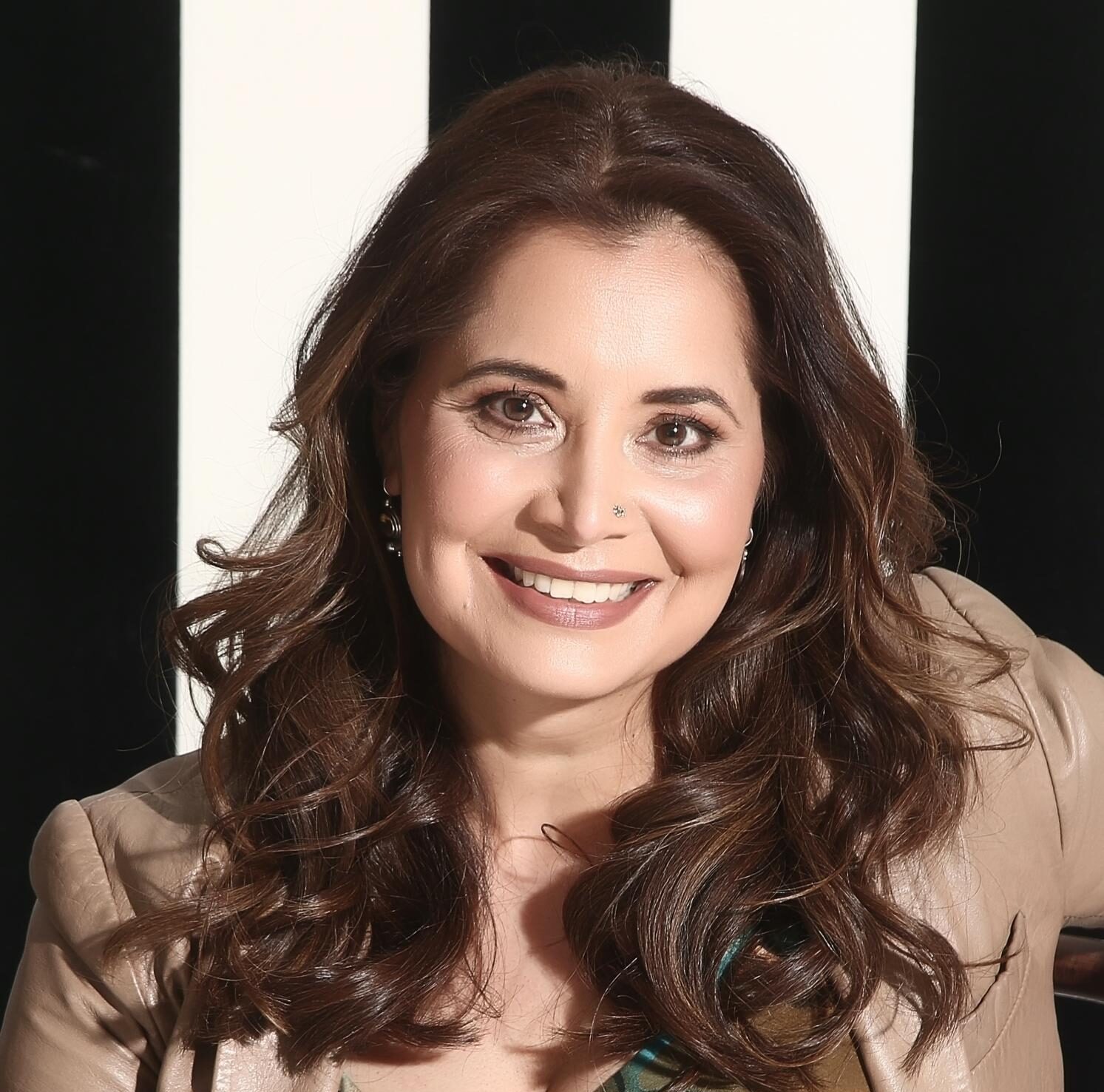
Malini Mehra
CEO, GLOBE Legislators, Co-Convener, RCAW
BIOGRAPHY
Malini Mehra is curator and co-convenor of Rio Climate Action Week. She has worked on climate change since COP3 in Kyoto and now leads GLOBE Legislators, the environmental organisation founded by Al Gore, John Kerry and other parliamentarians, which now serves as the UNFCCC Focal Point for parliamentarians. An award-winning sustainability leader, Malini brings more than three decades of international experience on climate change and sustainable development globally. From teen student leader in the 1980s to NGO founder, she has forged a long and distinguished international career working with business, government, the United Nations and civil society – including campaigning NGOs such as Oxfam and Friends of the Earth – to shape policy and accelerate action on climate change and sustainable development.
Some highlights from her long and varied career include serving as an advisor to UN Secretary General, Kofi Annan and working with President Cardoso of Brazil on UN-civil society reform. While in the UK Government 20 years ago, she was the architect of the UK’s pioneering sustainable development dialogue initiative with Brazil, China, India, South Africa and Mexico. She has served on advisory and governance boards of numerous corporates and NGOs, including the world’s largest companies such as Unilever, BHP and Hewlett Packard, China Dialogue and the Global Reporting Initiative. In 2000, she founded Centre for Social Markets, India’s first national award-winning climate change mobilisation NGO working with cities, business and youth. Her urban sustainability expertise dates back to Local Agenda 21 in the mid-1990s ,and she served as a Commissioner to the Mayor of London on Sustainable Development for 7 years.
Born and raised in India, she has lived all over the world and speaks six languages. Now a naturalised British citizen, she lives in her adopted home of London with her husband and three children. She is a founding organiser of London Climate Action Week and has taken it global, curating similar climate action weeks in Baku and now Rio de Janeiro. Her academic background is in political science, gender and development and she has degrees from Smith College (USA) and the Institute of Development Studies (IDS-Sussex). A keen swimmer, she is also the founder of the Teach A Girl To Swim campaign to save lives, tackle climate change and empower women and girls.
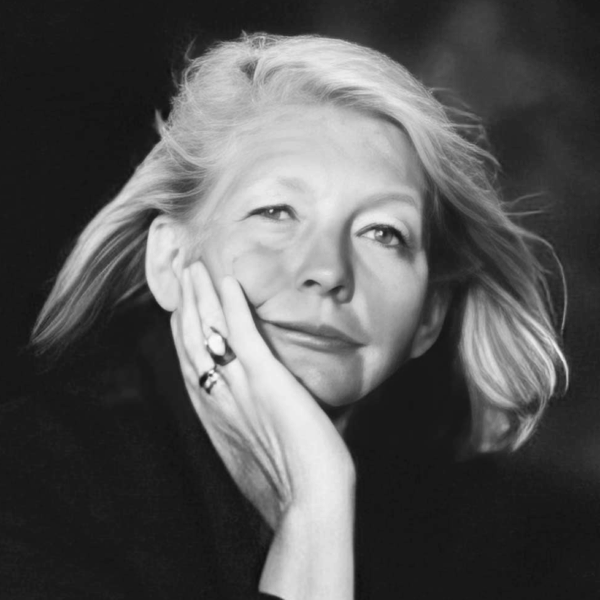
Hanne Strong
Founder, Manitou Foundation
BIOGRAPHY
Since 1972, Hanne Marstrand Strong has traveled to over 100 countries and has coordinated numerous civil society events parallel to High Level United Nations conferences. She has been invited to numerous universities, seminars and conferences as a guest speaker to address global issues covering topics such as inter-religious communities, sustainable living and spiritually based environmental education. She has also founded numerous nonprofit organizations for Native Americans and in the 1970’s, co-founded the first non-profit private foundation in Kenya with Sir Richard Leakey and Nobel Peace Prize recipient, Wangari Maathai, for the disabled and street children.
Over the past 40 years, Mrs. Strong has worked with Native Americans throughout the Americas and indigenous peoples worldwide to assist in their efforts to preserve their spirituality, cultural values, and native lands. For over 40 years, she received extensive spiritual training from indigenous shamans, and masters from the Buddhist, Hindu and Sufi lineages.
Strong is the founder of the Earth Restoration Corps, a global environmental- educational training program she founded, designed to train young adults in ecosystem restoration and green livelihoods. She is also the founder of the Manitou Institute & Conservancy (1972) and placed over 1,900 acres of the Foundation’s land holdings under Conservation Easements. The Manitou Habitat Conservation Program (MHCP) protects and preserves the pristine mountain range, wildlife habitats, and fragile ecosystems above the Baca Grande development zone.
The Manitou Foundation makes land and financial grants to spiritual and environmental projects in the small Colorado mountain wilderness town of Crestone/Baca. The Institute supports a number of spiritual and environmental projects. has been an advocate for environmental conservation and restoration for many decades. The Crestone community currently houses many of the world’s wisdom traditions and is referred to as the “Refuge for World Truths” and accommodates thousands of visiting retreatants per year who seek to develop inner peace and balance within oneself and with nature. It is the largest intentional, inter-religious and sustainable living community in North America.
In 1976, Mrs. Strong organized a parallel conference to the HABITAT UN Conference on Human Settlements in Vancouver, British Columbia and created a platform for children and youth to address pressing global issues at the official plenary session. At Mrs. Strong’s invitation, Mother Teresa joined her as co-convenor of the event. She served as a Senior Advisor, organizer and lead fundraiser for the Millennium World Peace Summit of Religious and Spiritual Leaders held at the United Nations in New York in 2000. It was the first conference of its kind ever held at the United Nations.
In 1992, Mrs. Strong organized and chaired two parallel conferences to the Conference on Environment and Development (UNCED) (also known as the Earth Summit), entitled “the Sacred Earth Gathering” and “the Wisdom Keepers Convocation” in Rio de Janeiro, Brazil. Participants of the Sacred Earth Gathering formulated the “Declaration of the Sacred Earth Gathering” which was presented to the Heads of State on the opening day of the official conference.
“The wisdom keepers from around the world — Aborigines, Tibetans, Hopi, Iroquois, Anishnabe — all share such prophecies and remind us of what universal natural law instructs. It teaches, for instance, that no one owns the land: we must take only what is truly needed from the earth, and give something back. Today people transgress it, neglecting to express gratitude, and failing to comprehend that for every action there is an effect. We violate these ancient wisdoms, disrespecting those who inherently embody them, rather than learning from them how we must live in order to survive. We have chosen an approach of subduing and dominating Nature, considering the planet as a commodity, greedily plundering the organs of our Mother, the Earth. Sustainable global development is achievable only through a fundamental shift in the way we think about and treat both the Earth and each other.
“The human race has gone through many stages, from hunter-gatherer to the agricultural revolution, the industrial revolution, and the science and technology revolution. Our technological industrial focus developed momentum over years of greater and greater separation from the laws of nature — and isolation from the nurturing and centring influence of time spent in nature. Our perception that science and technology are the answer to everything is an illusion, perpetuating this imbalance. The real answer lies in an ecological and spiritual revolution. Business and industry must devote their brilliance, and some of their profits, towards restoring the Earth. Government and non-governmental organizations must redirect efforts and funds from projects that do not work to restoring and protecting our planet.“
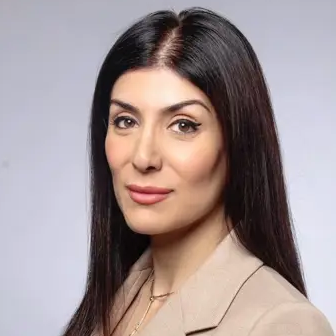
Nigar Arpadarai
High-Level Climate Champion for COP29
BIOGRAPHY
Nigar Arpadarai is an independent Member of Parliament for Azerbaijan, representing one of the central constituencies of Baku city since 2020. She was elected to parliament after 15 years of professional experience in international organizations, sports and telecommunications.
Prior to becoming a Member of Parliament, Ms. Arpadarai was the Director of the Marketing and Communications Department and the official spokesperson of the Formula 1 Azerbaijan Grand Prix since its inception in 2016. She holds Bachelor’s and Master’s degrees in law and international relations from Baku State University.
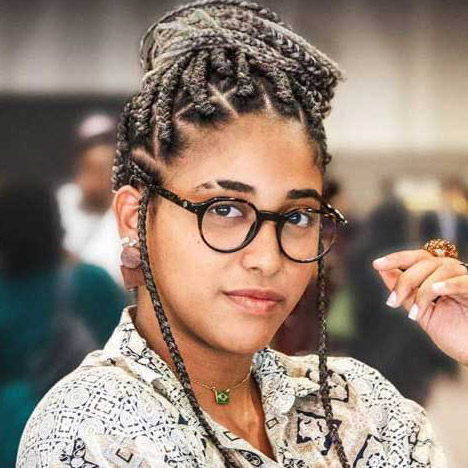
Marcele Oliveira
Youth Climate Champion for COP30
BIOGRAPHY
Marcele Oliveira is a black woman born in Realengo, a city in Rio de Janeiro. A cultural producer with a degree from the Universidade Federal Fluminense (UFF), she became involved in climate activism through the struggle of the current Parque Realengo Susana Naspolini. A member of the Climate Youth Negotiators program, she has attended climate conferences since the COP in Egypt (2022), through the Climate Change Coalition and Perifalab.
She is also a co-founder of the coalition “O Clima é de Mudança” and a Climate Youth Negotiator at the state of Rio de Janeiro's Environment and Climate Secretariat (Jovem Negociadora pelo Clima da Secretaria do Meio Ambiente e Clima do estado do Rio de Janeiro). Marcele Oliveira researches the interlocution between cultural practices and combating the consequences of climate change in the peripheries, with a focus on adaptation and climate education.
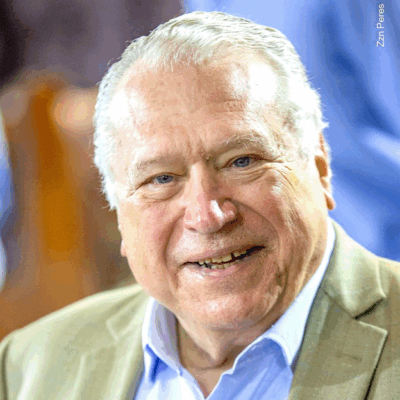
Paulo Protásio
Director, Authority for Sustainable Development of the State of Rio de Janeiro; Executive Secretary of the Rio Earth Summit 1992 (UNCED)

Paulo Protásio
Director, Authority for Sustainable Development of the State of Rio de Janeiro; Executive Secretary of the Rio Earth Summit 1992 (UNCED)
BIOGRAPHY
Executive Secretary of Rio 92, he was President of Embratur, the Rio Commercial Association, founder of CEBDS, IETA, director of Brasil Export, Rio Internacional, lawyer and businessman. He was recently elected President of the CISBRA-CAERJ System and appointed Executive Director of the Sustainable Development Authority / Rio de Janeiro Government.
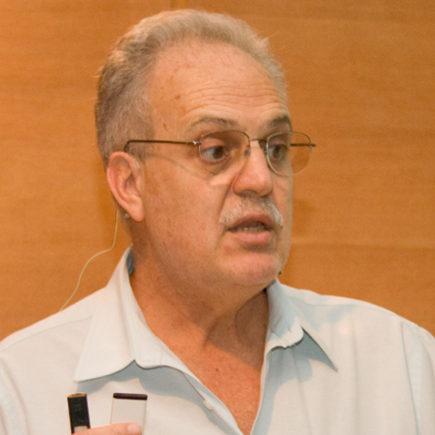
Prof Carlos Nobre
Earth System Scientist, National Institute for Space Research – INPE, Brazil
BIOGRAPHY
Carlos Nobre is an Earth System scientist from Brazil. He obtained a PhD in Meteorology from the Massachusetts Institute of Technology (MIT), USA, in 1983. Nobre’s work mostly focuses on the Amazon and its impacts on the Earth system. He chaired the Large-Scale Biosphere-Atmosphere Experiment in Amazonia (LBA). He is the co-chair of the Science Panel for the Amazon and the leader of the Amazonia 4.0 project, which aims to develop a nature-based bioeconomy of standing forests and flowing rivers. He has also been a member of the Intergovernmental Panel on Climate Change (IPCC). He was National Secretary for Research and Development (R&D) Policies at the Ministry of Science, Technology and Innovation of Brazil and President of Brazil’s Agency for Post-Graduate Education (CAPES). He is a foreign member of the US National Academy of Sciences, and a member of the Brazilian Academy of Sciences and the World Academy of Sciences.
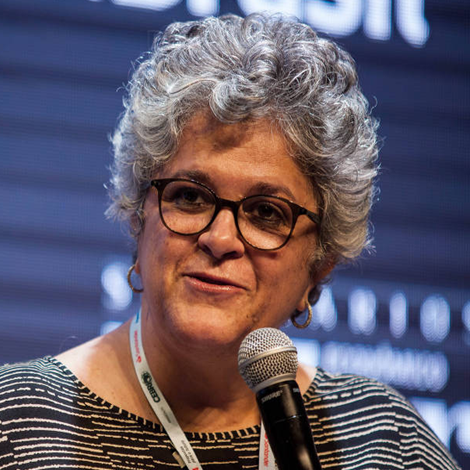
Izabella Teixeira
Former Minister of the Environment & Climate Change, Brazil; Member, Advisory Board, Brazilian Center of International Relations (CEBRI)

Izabella Teixeira
Former Minister of the Environment & Climate Change, Brazil; Member, Advisory Board, Brazilian Center of International Relations (CEBRI)
BIOGRAPHY
Member of the International Advisory Board at the Brazilian Center of International Relations (CEBRI). Former Minister of Environment (2010-2016). She is also Co-Chair of the International Resource Panel of the UN Environment (IRP/UNEP), member of the High Level Advisory Board of UN-DESA and of the Administrative Council of The Brazilian Development Bank (BNDES).
Throughout her career, Izabella Teixeira held different administrative positions in the Ministry of Environment, in the Rio de Janeiro State Government and in IBAMA, where she joined in 1984. She played a key role in the negotiation of the Paris Agreement and was appointed, in 2012, to serve on the High-Level Panel of Eminent Persons for the Post-2015 Development Agenda.
In 2013, she won the UN Environment's "Champions of the Earth" Global Award for her contribution to reducing deforestation in the Amazon. She holds a Master's degree in Energy Planning and a PhD in Environmental Planning from COPPE/UFRJ.
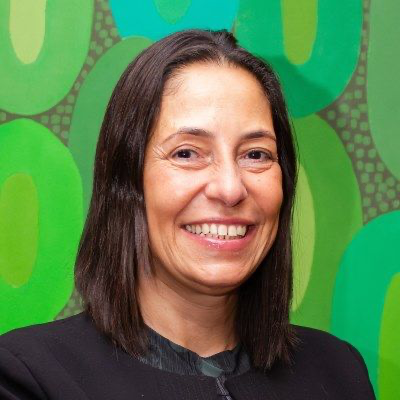
Maria Netto
Executive Director, ICS Brazil
BIOGRAPHY
Maria Netto is the Executive Director of the Institute for Climate and Society. She worked at the Inter-American Development Bank (IDB) as a Principal Specialist in Capital Markets and Financial Institutions, and at the New Development Bank (NDB) as Head of the Division of Financial Institutions and Markets. In both organizations, she was responsible for supervising programs of Innovative Financing Strategies with local financial institutions and capital markets to promote the financial inclusion and investments of the private sector in low carbon projects and resilience in the region of Latin America and the Caribbean, including in sectors of land use, low carbon agriculture, renewable energy and energy efficiency, resilient and sustainable infrastructure and urban mobility, among others. Maria Netto also worked previously at the United Nations Development Program (UNDP), where she was responsible for supervising global projects to support the capacity building of countries and civil society to assess investments and financial flows and policy options to integrate green business in different sectors and economic activities. Finally, Maria Netto worked for more than 10 years at the secretariat of the Convention on Climate Change (UNFCCC), where, among others, she was responsible for leading the work of the institution in bilateral and multilateral financial cooperation, for the evaluation and monitoring of investments and financial flows to address climate change and the development of carbon market mechanisms under the Kyoto protocol.
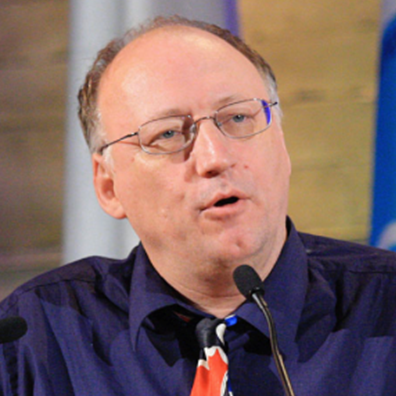
Felix Dodds
Author and Expert on International Environmental Governance
BIOGRAPHY
Felix Dodds has been active at the UN since 1990 and has focused on issues such as water, climate, governance, environmental security and stakeholder engagement.
His focus at UNC has been on the Nexus of Water, Food, Energy with Climate Change. He has co-directed the Water Institute's two conferences on the subject in 2014 and 2018. This resulted in the 2016 co-editing for Routledge of “The Water, Food, Energy and Climate Nexus” with Dr. Jamie Bartram, Director of the Water Institute, with a Foreword by HRH Prince Charles.
In 2019 he was a candidate for the Executive Director of the UN Environment Programme and he is an International Ambassador for the City of Bonn.
He has written or edited eighteen books including: “Negotiating the Sustainable Development Goals: A transformational agenda for an insecure world” (2016), written with the co-chair of the negotiations Ambassador David Donoghue and Jimena Leiva Roesch with a Foreword by former Irish President Mary Robinson. It is the final book in a trilogy (known as the Vienna Café Trilogy) of books on sustainable development at the global level from 1972 to now. The other two books being: “From Rio+20 to a New Development Agenda: Building a Bridge to a Sustainable Future”, written with Jorge Laguna Celis and Ambassador Liz Thompson, and “Only One Earth: The Long Road via Rio to Sustainable Development”, written with Michael Strauss and the father of sustainable development Maurice Strong.
For the Sustainable Development Goals process he advised the Ford Foundation, the Communitas Coalition, Article 19, the World Animal Protection and the company AVIVA. He also set up and advises the government group Friends of Governance for Sustainable Development.
In 2012 he was on the Steering Committees for the major global scientific conference "Planet Under Pressure". In 2011 he chaired the UN conference "Sustainable Societies Responsive Citizens". The outcome document was the first one to put forward some suggestions on what the Sustainable Development Goals should be.
From 2008 to 2011 he ran the Water and Climate Coalition securing water as a major element of future climate negotiations.

Carolina Aragão
Director, Pro Natura International; Brazilian beach volleyball champion
BIOGRAPHY
Carolina Aragão Prohmann is the Director of Innovation and Impact at ProNatura International, a global organization dedicated to sustainable economic development through systemic and regenerative solutions. She also leads the Secretariat for Rio Climate Action Week (RCAW), a new initiative in partnership with London Climate Action Week (LCAW), which brings LCAW’s unique whole-of-society climate mobilisation model to Brazil to build momentum ahead of COP30.
With extensive experience in developing sustainability strategies, Carolina has led several projects, with a strong focus on economic transition initiatives in the Amazon. Her work integrates productive value chains, social innovation, and climate finance mechanisms. She was the founder of Grupo Somar, a consultancy specialized in sustainability strategy and positioning, which supported major companies and civil society organizations for nearly a decade.
Carolina holds a degree in Business Administration from PUC-Rio and a specialization in Business Sustainability Management from the University of Cambridge. She also has additional training in innovation, conflict mediation, and cause marketing. A former high-performance beach volleyball athlete, she is a two-time world champion and three-time Brazilian champion in the under-21 category. She brings to her work the passion, resilience, focus, and systemic vision that guide her mission: to build bridges between purpose, positive impact, and scalable transformation.
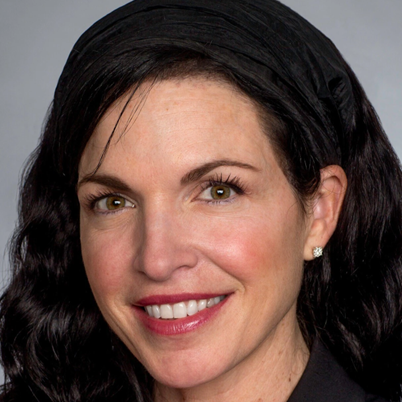
Veronica Nyhan Jones
Global Head, Climate Capacity & Inclusion Accelerator, International Finance Corporation (IFC)

Veronica Nyhan Jones
Global Head, Climate Capacity & Inclusion Accelerator, International Finance Corporation (IFC)
BIOGRAPHY
Veronica works to increase the volume and impact of sustainable finance, influence the quality and credibility of global standards, and enhance nature and climate leadership skills across industries. Her team designed the first practical biodiversity finance guidelines, harmonized guidelines for circular economy finance, and incubated IFC’s approach to transition finance including hard-to-abate sectors. To spur local capital markets to issue green, blue and social finance, her team has trained over 2000 banking executives across emerging markets to enable almost $20B in sustainable bonds.
She also spearheads cross-industry collaborations on bioeconomy, SMEs, and local value chains to generate broader societal support for inclusive transitions. Previously Veronica managed IFC’s Global Sustainable Infrastructure Advisory helping companies financially value returns on sustainability, deliver local economic development and empower communities to use open data such as for water stewardship. Prior to IFC, Veronica worked at the World Bank, the International Youth Foundation, the White House, and the US Department for Health & Human Services. She holds a Master’s from Harvard Kennedy School of Government.
Veronica is known for her innovative ability to convene and connect a broad range of stakeholders to achieve positive outcomes. She was the founder of IFC’s global Sustainability Exchange and developed Commdev.org, IFC’s external repository to share best practice in community-private sector development. Veronica served on the World Economic Forum’s Council on Infrastructure & Long-term Finance and as an advisor to Kellogg’s Development Partnership Initiative. She was listed among 10 Inspirational Women in Mining and has published methods on measuring social capital.
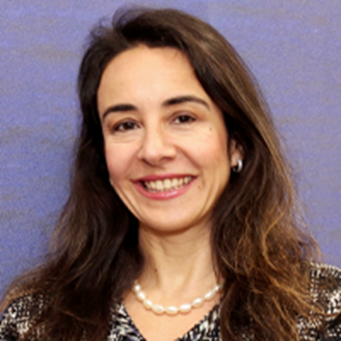
Ambassador Tatiana Rosito
Secretary for International Affairs, Brazil’s Ministry of Finance
BIOGRAPHY
Senior Fellow at CEBRI, where she founded CEBRI’s China Analysis Group in July 2017Ambassador Tatiana Rosito is the Secretary for International Affairs at the Ministry of Finance of Brazil since January 2023. In this capacity, she was the Finance Track Deputy at the Brazilian G20 Presidency in 2024 and is currently the BRICS Finance Deputy. Her portfolio includes bilateral and multilateral finance cooperation, global MDBs, climate finance and trade policies. A diplomat and economist. She has worked for more than twelve years in Asia, at the New Development Bank, Petrobras China and the Brazilian Embassies in Beijing and Singapore. Previously, she haserved at the Brazilian Mission to the United Nations. In Brasília, she was Executive Secretary at the Brazilian Foreign Trade Board (CAMEX) and Special Advisor to the Ministers of Finance and Planning. She holds a Master’s degree in International Development from the Harvard Kennedy School and an Executive MBA from INSEAD and Tsinghua University.
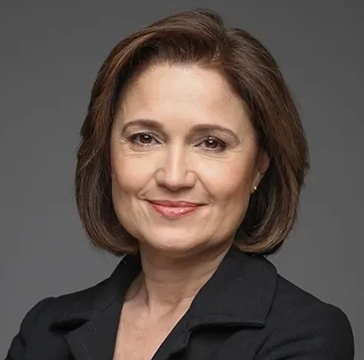
Marina Grossi
President, CEBDS
BIOGRAPHY
Economist and recognized pioneer in corporate sustainability in Brazil, Marina has more than 20 years of experience in climate change and sustainable finance. She is the President of the Brazilian Business Council for Sustainable Development (CEBDS), speaker, and member of the Boards of Directors of national and international companies and organizations.
With extensive experience in promoting sustainable business models and mobilizing and engaging companies, government and civil society, Marina’s mission is finding solutions to advance sustainable development in Brazil.
She acted as a climate negotiator, representing the Brazilian government at the Conference of the Parties (CoP) under the United Nations Framework Convention on Climate Change (UNFCCC) from the Kyoto Protocol in 1997 up to 2001, and led the group of developing countries (G77 + China) in 1999.
Also for the government, she headed the research sector on global change as an advisor to the Ministry of Science and Technology and coordinated the Brazilian Forum on Climate Change, from its creation in 2001 up to 2003.
In the private sector, she has headed a number of studies and reference publications, such as “Vision 2050 – A new agenda for companies,” which gained prominence at the United Nations Conference on Sustainable Development (Rio+20), and the “Guide to Green Bond Issuance,” awarded Initiative of the Year in 2017 by the Environmental Finance Green Bond Awards.
Active advocate and articulator of carbon market regulation since 2016, she was a member of the Steering Committee of the Carbon Price Leadership Coalition (CPLC), the governing council of the World Bank coalition for carbon pricing, in 2018 and 2019.
More recently, Marina has led efforts to bring together the main voices of the Brazilian business sector on urgent societal issues with the launch of different impact movements, such as the “Business Movement for the Amazon”, “Climate Neutrality: a great opportunity” and “Business Leaders for the Climate”.
She is also a member of the Board of Directors of Neoenergia, of Norte Energia S.A. and the Global Reporting Initiative (GRI), member of Edelman's Independent Board of Climate Experts and founder of the Network of Brazilian Women Leaders for Sustainability.
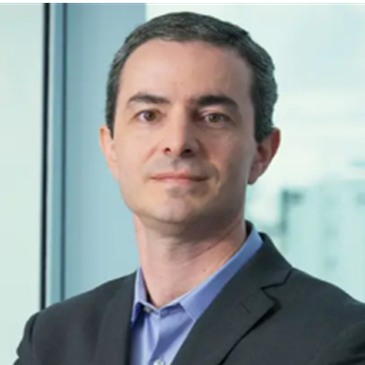
Ricardo Mussa
Chair, Sustainable Business COP
BIOGRAPHY
Ricardo Mussa is an Industrial Engineer that started his career as a consultant and worked at Unilever for more than 10 years in many different countries and roles before joining Danone in Latin America as Director of Supply Chain. He was CEO of Radar Agricola, one of the largest Farmland Companies in Brazil and CEO of Moove Lubricants with operations in more than 10 countries.
More recently he was the CEO of Raizen an integrated Energy and Food company with a large agricultural operation and energy / fuel distribution. Mussa was board member of public traded companies in Brazil and US over the years. Currently he is the Chair of Sustainable Business COP, a global initiave that represents the Private sector (among more than 45 million companies) in the Climate discussions taking place at COP30.
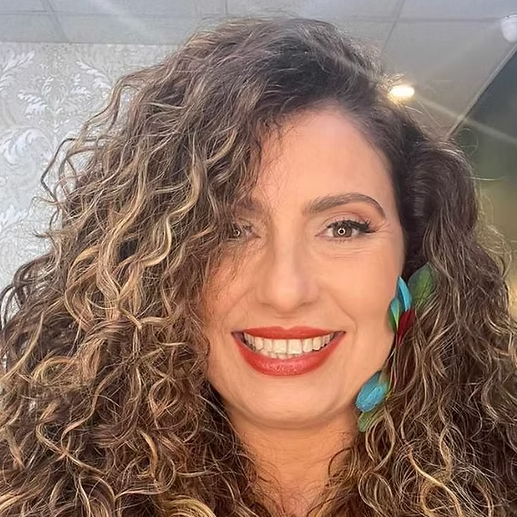
Ana Luisa Anjos
Brazilian Journalist & Broadcaster, Dos Anjos Productions
BIOGRAPHY
Experienced in event management and sales for over two decades, I specialize in driving impactful events and business growth. From managing Olympic sales events for the Rio de Janeiro Port Authority to coordinating FIFA World Cup protocol operations, I thrive in high-pressure environments. As an executive producer, I've curated memorable experiences like the Rio + 20 Closing Concert and international events, fostering global connections. Passionate about environmental sustainability and Indigenous rights advocacy, I've directed festivals and produced content for the United Nations, working to amplify these crucial causes. Let's connect and collaborate!
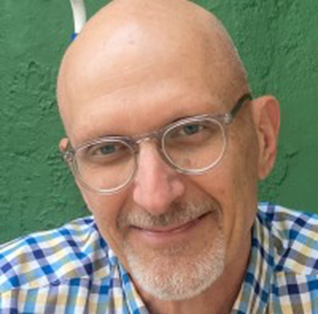
Jeb Brugmann
Founder, ICLEI – Local Governments for Sustainability; Founding Principal, Resilient Cities

Jeb Brugmann
Founder, ICLEI – Local Governments for Sustainability; Founding Principal, Resilient Cities
BIOGRAPHY
Across a 40 year career as a social entrepreneur, regional and consumer economist, and non-profit executive, Jeb has worked with cities, non-profit organizations and community based organizations, global companies and property developers to establish and scale new social development, sustainability and business practices. He is internationally recognized for his lead contributions to the establishment of urban sustainability planning and local climate action planning practices (1990-), and ‘base of the pyramid’ (BoP) business & product development, focusing on poverty reduction and health solutions (2004-2010).
Early in his career Jeb played a founding role nationally in the establishment of the U.S. Sanctuary Cities movement and similar 'municipal foreign policy' initiatives of the 1980s. This led him to establish ICLEI-Local Governments for Sustainability in 1989-90, in partnership with the UN Environment Programme. He served as ICLEI’s Secretary General from 1991-2000, building its global programs and operations. Under his leadership ICLEI founded the first international action research program on urban greenhouse gas management and the worldwide Cities for Climate Protection campaign (1991-2000). Jeb also conceived and established the worldwide Local Agenda 21 sustainability planning initiative, securing its endorsement by 172 national governments at the 1992 UN 'Earth Summit'.
In 2004, together with leading business strategist C.K. Prahalad, Jeb co-founded The Next Practice, focusing on business solutions to address the poverty challenges of the world's lowest income households, in particular on the issues and livelihoods of women and smallholder farmers. As Partner, Jeb led development of TNP’s methods for consumer insight, market analytics, channel development, and NGO/CBO partnerships. Key projects included the design and establishment support for the Barclays Social Impact Fund, bp First Energy (smokeless biomass stoves), and Reuters Market Light (small farmer direct market access and mobile extension service).
Jeb's international research programs and publications have been funded by national governments, the World Bank, the United Nations & numerous charitable foundations. He has been a Senior Associate of the University of Cambridge Institute for Sustainability Leadership, author of Welcome to the Urban Revolution: How Cities Are Changing the World (2009-2010), and has lectured and been a keynote speaker in many countries.
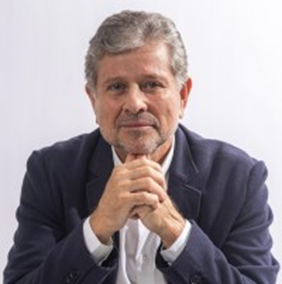
Ricardo Piquet
President Director of Museum of Tomorrow
BIOGRAPHY
Social entrepreneur, Consultant, Speaker and Executive with solid experience in the public, private and non-governmental sectors. Active in Culture, is at the forefront of the implementation and management of the most important cultural centers in Brazil, such as the Museum of the Portuguese Language, the Football Museum, the Rio Art Museum, as well as projects for youth with the Aprendiz Legal, which employed more than 250,000 teenagers.
Leads IDG - Instituto de Desenvolvimento e Gestão, a solid non-profit organization that manages cultural and environmental equipment and projects of great relevance in the national and international scenario an responsible for the management of the Museum of Tomorrow, Paço do Frevo, Museum of Favelas, Atlantic Forest Fund, Nossa Senhora dos Remédios Fort and Valongo Pier.
Member of the international council of the UN Live Museum and the steering committee of the Future Oriented Museums (FORMS), the Rio de Janeiro City Council, the Tom Jobim Institute, the Brazilian Business Council for Sustainable Development (CEBEDS), he also serves as advisor to the MOTI Foundation - Amsterdam and the Brazilian Center for Institutional Relations (CEBRI). He is also part of BMW Foundation Climate Change/Biodiversity Committee, as Responsible Leadership.
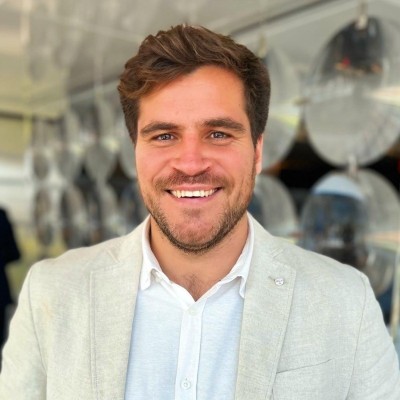
Felipe Villela
Director for Brazil, EarthShot Prize
BIOGRAPHY
A Brazilian Regenerative Agribusiness Expert and Co-Founder of reNature. Felipe is Forbes Under30 2020 and TEDxAmsterdam Speaker. Regenerative Agriculture Lead Author at UN Environment for their GEO for Business brief on “The changing role of Business in Transforming Food Systems”, part of the Leadership Team on Action Track 3 of the UN Food Systems Summit 2021 and Young World Champion at UNEP in 2019. Felipe’s ambition is to engage international corporations to make a transition in their agricultural practises using successful regenerative agriculture showcases that ensures economical viability and farmers resilience.
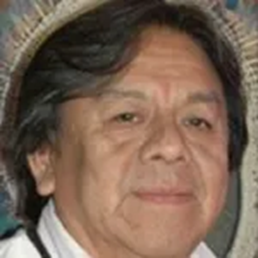
Professor Marcos Terena
Founder, United Indigenous Nations
BIOGRAPHY
Mr. Terena founded the United Indigenous Nations, the first indigenous movement in Brazil and was one of the coordinators of the indigenous rights in the Brazilian Constitution. He coordinated the World Conference of the Indigenous People on Territory, Environment and Development, in an indigenous zone, the Kari-Oca Park, where the Earth Letter and the Kari-Oca Declaration was created in Rio in 1992.
Besides being the creator of Indian Voice, a radio programme, Mr. Terena has also commented about indigenous rights in various television programmes. He has written two books: The Indian Aviator and The Citizens of the Jungle.
Mr. Terena is the Articulator of the Indigenous Rights in the UN as well as the President of the Intertribal Committ ee (ITC) and the VIATAN, an Indigenous Information Center.
Marcos Terena is a national of Brazil.
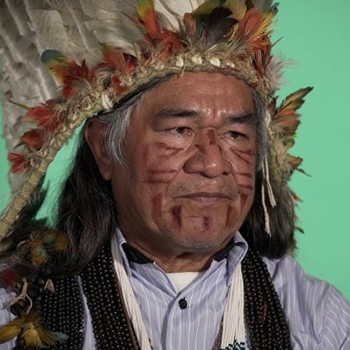
Álvaro Tukano
Political Leader & Activist
BIOGRAPHY
Álvaro Fernandes Sampaio was born in the indigenous village of the Tiquié River , in the municipality of São Gabriel da Cachoeira, in the Upper Rio Negro , in the Brazilian state of Amazonas . He is the son of chief Casimiro Lobo Sampaio (Tukano) and Guilhermina Fernandes ( Desana ). [ 4 ]
He remained in his village until 1963, when his father took him to Pari Cachoeira to study at the Salesian missionary school. In 1968, he was invited to study in São Gabriel da Cachoeira due to his good academic performance. He finished high school in 1972 and returned to Pari Cachoeira as a teacher in 1973. [ 1 ] [ 5 ]
Álvaro Tukano, who found his militant vocation after learning about the situation of the indigenous people in Maranhão, stood out on the national and international scene of the indigenous issue, between the 1970s and 1980s, with leaders such as Mario Juruna , Marçal Tupã-Y , Marcos Terena , Daniel Pareci , Aílton Krenak , Davi Kopenawa Yanomami , Lino Miranha , Raoni and others, who emerged and distinguished themselves as leaders at different times. [ 1 ] In the book “ The Fall of the Sky ”, written by David Kopenawa and Bruce Albert, it is possible to find stories about this militancy for indigenous rights.
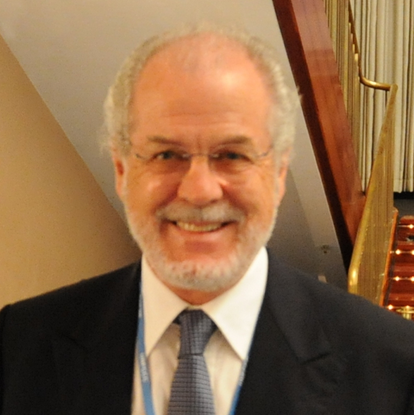
Michael Zammit Cutajar
Executive Secretary, UNFCCC (1991-2002)
BIOGRAPHY
A serving United Nations staff member, Michael Zammit Cutajar was assigned in 1991 to set up in Geneva the interim secretariat supporting the intergovernmental negotiations that produced the United Nations Framework Convention on Climate Change (UNFCCC). After the entry into force of the Convention and its first Conference of the Parties (1995), he was appointed head of the permanent Convention secretariat, with the title of Executive Secretary and the rank of Assistant Secretary-General of the United Nations. He rebuilt the secretariat at its new home in Bonn in 1996 and headed it there until his retirement from the United Nations in 2002.
Between 2002 and 2011, Mr. Zammit Cutajar advised the Government of Malta on climate change and international environmental issues, serving as Malta's Ambassador on Climate Change in the work of the European Union and the UNFCCC. In that period, he also participated in bodies providing advice to the World Bank and to the President of the European Commission.
As Malta's Ambassador, he was elected to be Chair of the Ad Hoc Working Group on the Kyoto Protocol (2006) and Vice-Chair and Chair of the Ad Hoc Working Group on Long-term Cooperative Action (2008-2009) the two negotiating tracks then aiming at agreement on stronger international action to address climate change. In the latter functions, coming to a close at UNFCCC COP 15 at Copenhagen, his working base was the Institute for Sustainable Development and International Relations (IDDRI), in Paris.
Since resigning his ambassadorial functions in 2011, Michael Zammit Cutajar has continued to take part in discussions around the international negotiations on climate change.
During 2014-2015, he renewed his relationship with IDDRI, providing advice on those negotiations in the context of IDDRI's mission to provide substantive support to France's Presidency of UNFCCC COP 21. In that capacity, he was included in the French delegation to the UNFCCC. Also in 2015, he advised the Government of Malta on the climate change content of the Commonwealth Heads of Government Summit hosted by Malta that year and led the drafting of the Commonwealth Leaders Statement on Climate Action.
He stepped back from the climate change scene at the end of 2015.
Mr. Zammit Cutajar has been awarded honours for his work in the area of climate change: Member of the Order of Merit of Malta (2007), Knight's Cross in Hungary's Order of Merit (Civil Division) (2009), Chevalier de la Legion d'Honneur, France (2010), and Cross of the Order of Merit of the Federal Republic of Germany - Verdienstkreuz am Bande - (2013).
Mr. Zammit Cutajar a citizen of Malta, born 1940 - was educated at St. Edward's College, Malta, and the University of London. Before being parachuted into the climate change arena, he had devoted most of his career to work in and around the United Nations on international cooperation for development and environment.
His earlier United Nations postings were with the UN Conference on Trade and Development (1967-71, 1974-78, 1986-91), the UN Conference on the Human Environment (1971-72) and the UN Environment Programme (1973-74). Between 1982 and 1985, he undertook assignments for the United Nations at its Geneva and New York offices and on mission in Iran.
His work outside the United Nations framework included assignments with the Uganda Development Corporation, Kampala (1963-65), the Overseas Development Institute, London, UK (1965-67) and International Foundation for Development Alternatives, Nyon, Switzerland (1978-81).

Leyla Hasanova
Youth Climate Champion for COP29
BIOGRAPHY
Ms. Hasanova is the Chairperson of the Non-Aligned Movement Youth Organization, and has previously worked as Head of the Secretariat of the Non-Aligned Movement Youth Organization and Program Coordinator at the Institute for Development and Diplomacy at ADA University. She holds a master’s degree in public administration and graduated from the United National System Staff College (UNSSC) and the UN Office for Disaster Risk Reduction (UNDRR). In her role as COP29 Youth Climate Champion, Ms. Hasanova will amplify the voices of youth-led and youth-focused organizations to ensure that they are mainstreamed into climate diplomacy and the COP process. She will also work with YOUNGO, the official children and youth constituency of the UNFCCC, to empower children and youth and promote youth participation in climate action.
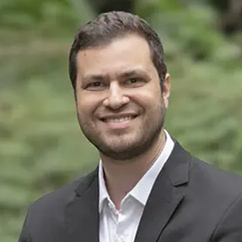
Guilherme Syrkis
Executive Director, Brazil Climate Centre (CBC)
BIOGRAPHY
Guilherme Syrkis is the Executive Director of the Brazil Climate Centre (CBC). Between 2016 and 2019, he served as a special advisor to the Ministry of Mines and Energy (MME), promoting renewable energies, innovation and tackling climate change. He was a member of the Administrative Council of the Manaus Free Trade Zone, giving recommendations and evaluating investments in the Amazon region. In 2013, he co-founded the Brazilian Photovoltaic Solar Energy Association (ABSOLAR) and became vice president. He promoted the government and institutional relations area, analysing and negotiating agreements to consolidate the Brazilian solar energy industry. In 2011, Syrkis co-founded a solar energy start-up that pioneered the development of grid-connected solar photovoltaic projects in Brazil. He began his career in 2009 in the planning department of the BNDES. Syrkis holds a Master's in Environmental and Energy Policy from the University of Chicago, fully funded by the Obama Foundation (2020). He has a Bachelor's in Business Administration from the Getúlio Vargas Foundation (FGV) and a Bachelor's in Executive Education from the Harvard Kennedy School. He is a PhD student in Energy at the University of São Paulo (USP).
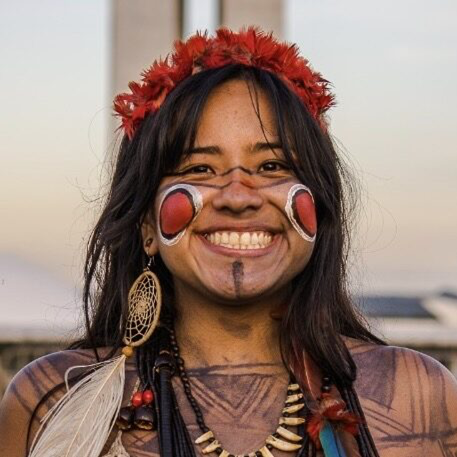
Taily Terena
Brazil Director, WECAN
BIOGRAPHY
Growing up, Taily Terena lived between two worlds: Brazil’s capital, Brasília, where she was born, and the Taunay Ipegue Indigenous Territory, more specifically in the Bananal community, located in the state of Mato Grosso do Sul, in the Brazilian wetlands. Even spending most of her time in Brasília, Taily never stopped returning to the Indigenous land, which has always kept her connected to her Indigenous roots.
She is Xané, better known as Terena, an ethnic group that lives mainly in the state of Mato Grosso do Sul but is also present in areas of the states of Mato Grosso and São Paulo. “A friend of mine says that we could be born far from the Indigenous territory, but our spirit calls us back. They call us to fight, and I feel this very strongly inside me, even being born in the city,” Taily says.
She was born in 1993, the daughter of Emília Dulce Florentino, an environmental activist, and Marcos Terena, one of the pioneers of the country’s Indigenous movement. Today, she follows in the footsteps of her ancestors as a young activist whose main topics of work are human rights, gender issues, youth and environmental protection. She is internationally recognized for her work, and in 2025, she became the first-ever Brazilian Indigenous person to receive the Global Citizen Prize, which celebrates activists worldwide.
Taily holds a degree in anthropology and in social sciences from the University of Brasília and today works at the International Indian Treaty Council, an organization that monitors whether the rights of Indigenous peoples are being recognized in international conventions and negotiations. In Brazil, she also contributes to the Institute of Indigenous Memory and Science and with the Inamatí Xâné Terenoe Terena Youth Collective, working on the topic of mobilizing youth. Gender issues related to Indigenous women’s rights are also an important part of Taily’s work, in the sense that she advocates for recognition of women’s relevance in decision-making spaces and defending rights.
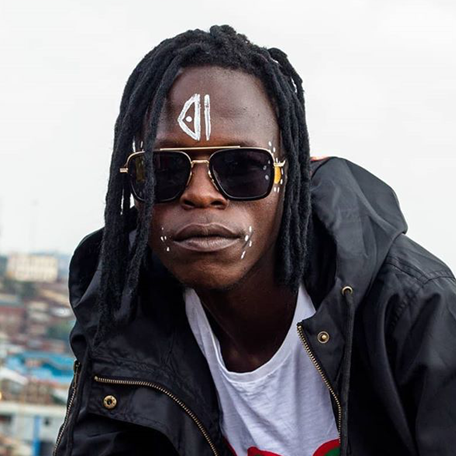
Daniel Owino aka Futwax
Human Needs Project, Kenya
BIOGRAPHY
Music producer sound engineer PERFORMING ARTIST* *SONG WRITER* -*LYRICS ENGINEER* - model l
CEO 4 strategic decision at Youth industrialization 4 a beta kibera settlement
Studied Dj PartyRock at The University of Texas at Austin
Went to Lang'ata barracks high
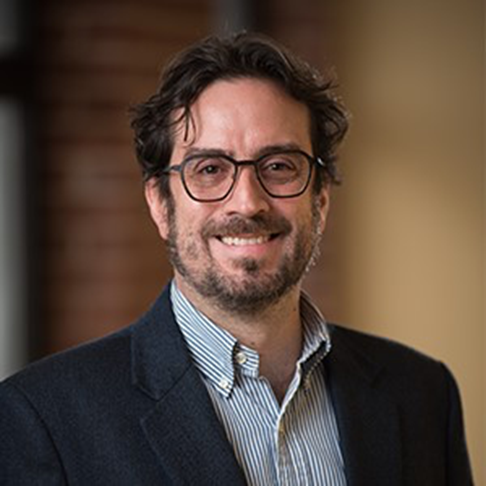
Pablo Viera
Global Director, NDC Partnership
BIOGRAPHY
Pablo Vieira is the Global Director of the NDC Partnership Support Unit. In this role, Pablo leads efforts that build momentum for ambitious climate and development actions, in collaboration with governments and international stakeholders around the world. Pablo develops and executes activities that help countries advance climate goals by facilitating access to analysis, tools, expertise, financing, and other resources.
Pablo is a leading figure in the environmental, green growth, and sustainable rural development sectors in Colombia. Before joining the NDC Partnership, he served as an Advisor to President Juan Manuel Santos, managing Colombia’s accession to the Organization for Economic Cooperation and Development (OECD) and supporting the coordination and implementation of national and international commitments on the environment and climate change.
In 2013, Pablo was appointed as Deputy Minister of Environment and Sustainable Development, responsible for the formulation, adoption, and implementation of all environmental and sustainable development strategies, policies, and regulations, with a special emphasis on climate change, water management, biodiversity, and ecosystem services.
Pablo also has wide experience working for the private sector in the fields of innovation and technology development for the petrochemical industry.
Pablo is a Chemical Engineer from Colombia’s National University and holds a Ph.D. from the Department of Chemical and Biomolecular Engineering at Tulane University in New Orleans.

